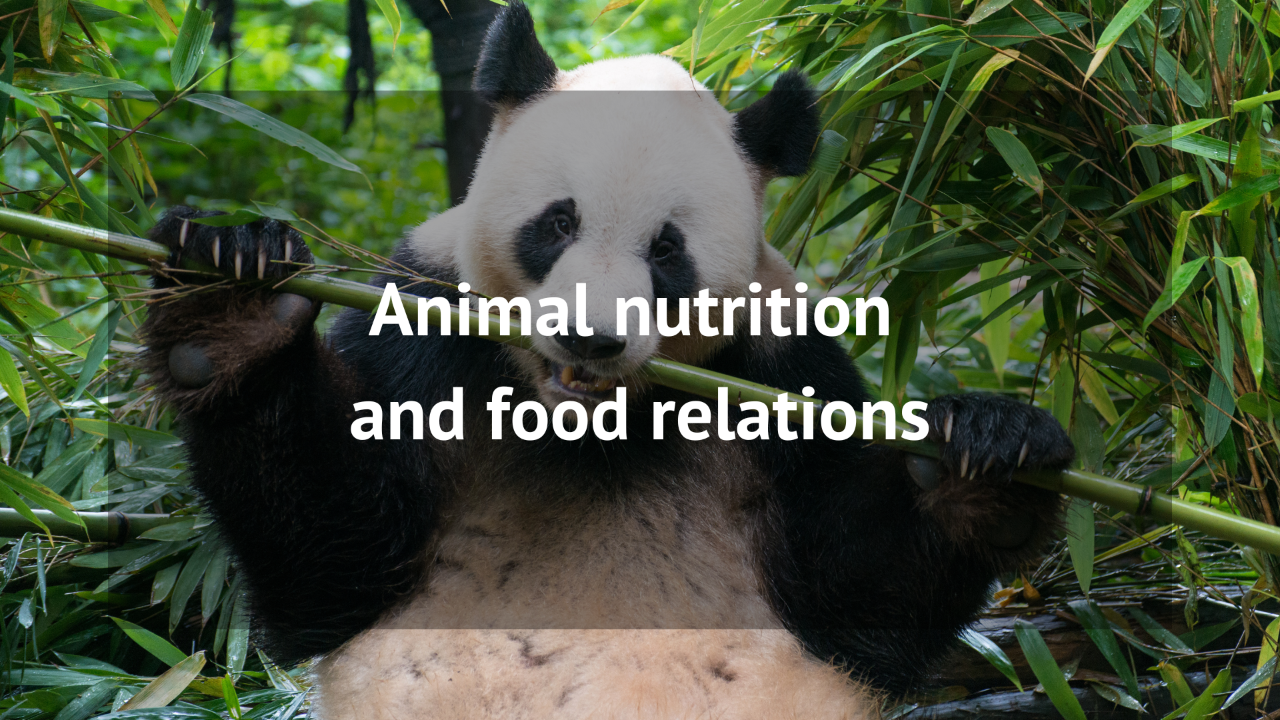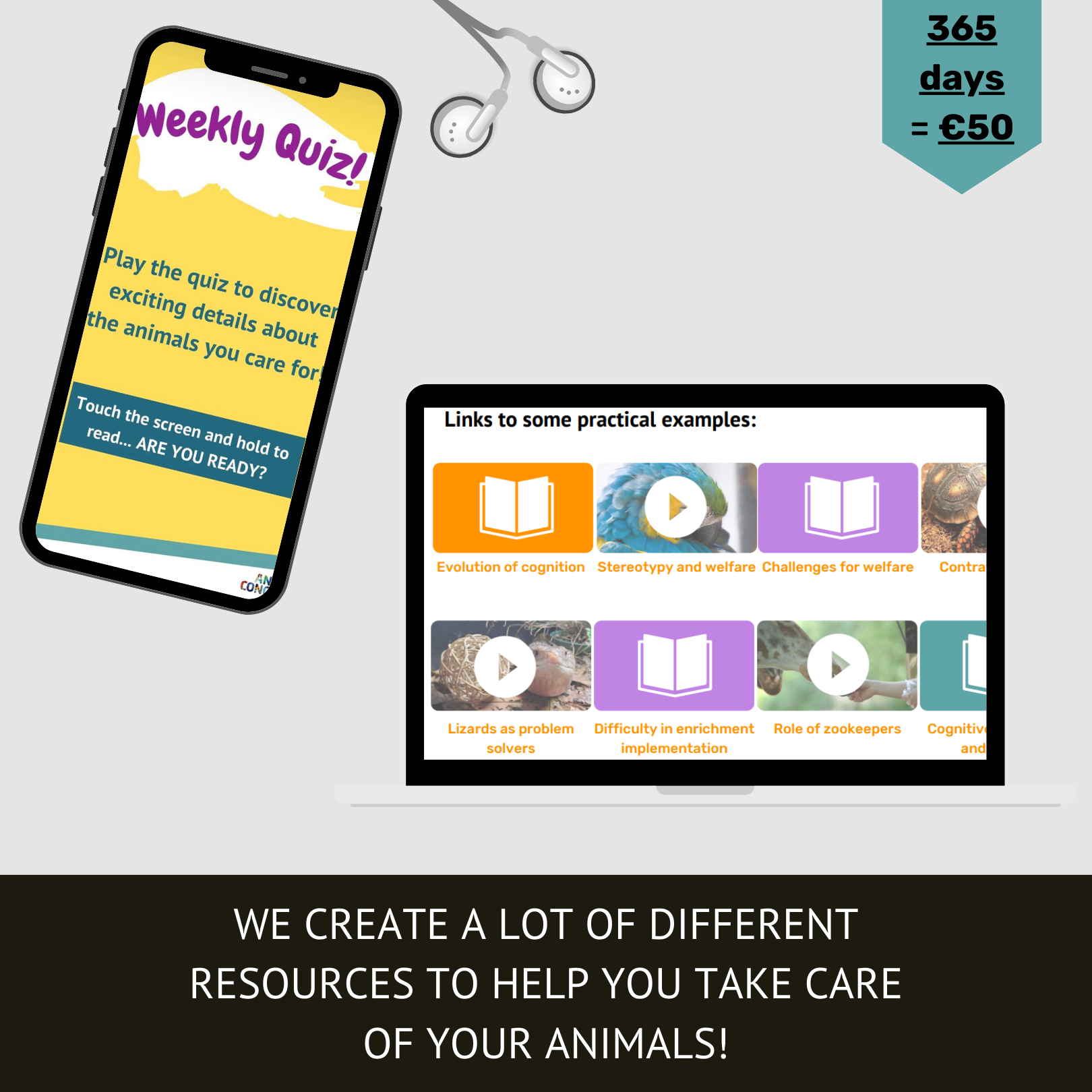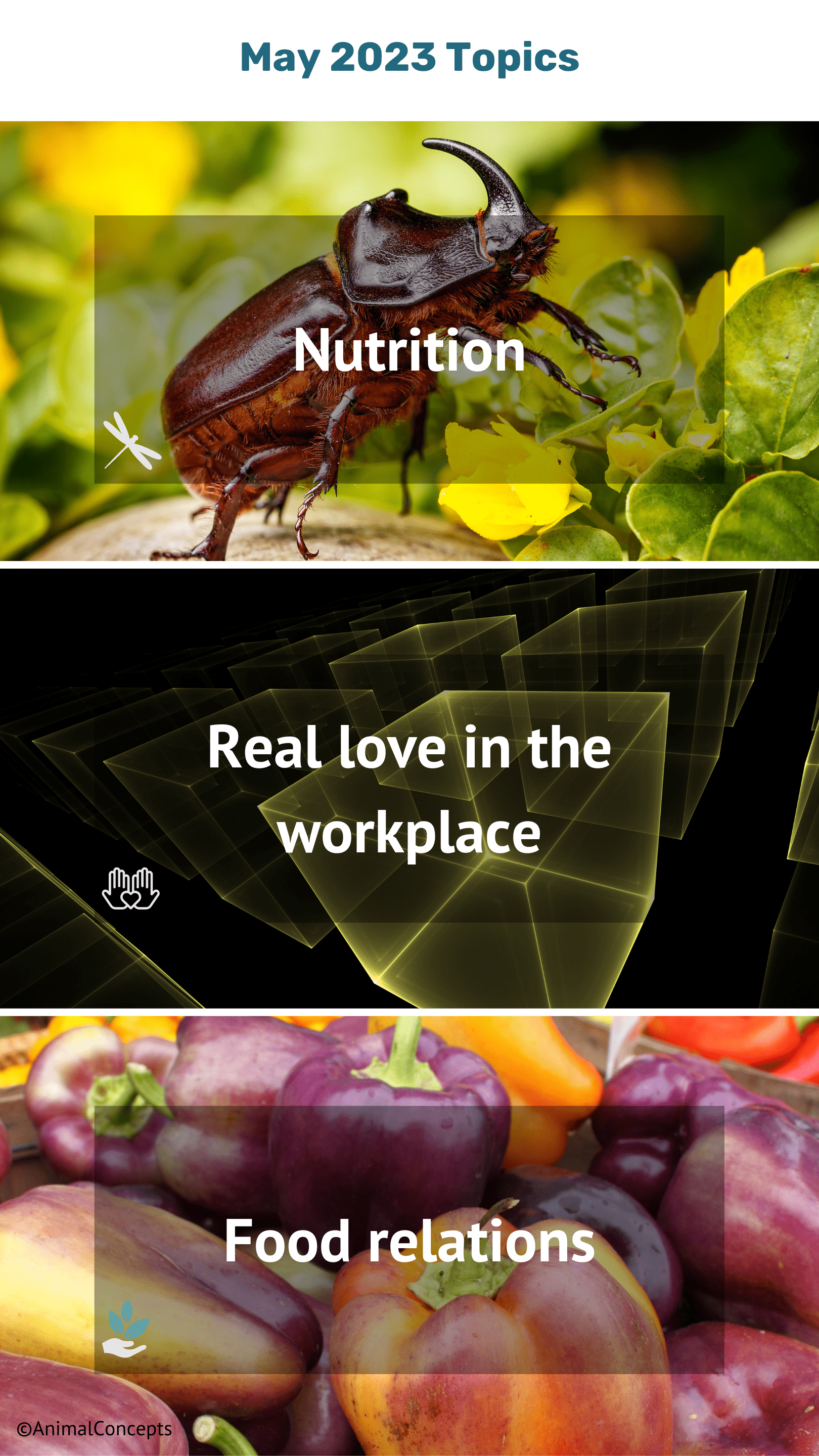Animal and planetary wellbeing: nutrition and food relations, Love in the workplace & SiP #150 Nutrition and health in amphibian husbandry

This month on the animal wellbeing platform is all about nutrition, and we talk about food relations on the planetary wellbeing platform. How are these two topics interconnected?
Nutrition is an essential aspect to sustain healthy and active animals. A suitable diet should meet energetic requirements, prevent nutritional disorders and diseases, be safe and hygienic, and encourage natural and engaging behaviours. Nutritional needs differ between species and vary across lifespans. Animal care staff works towards ensuring adequate diet and feeding regimes are provided to the animals.
On the other hand, our global food systems are closely intertwined with planetary health, including the quality of soil, water, and global emissions. Contemporary zoos, aquaria, and other animal care facilities play an important role in the dynamics of global food systems, and are recognising their responsibility to reduce their environmental impact and promote sustainable and ethical practices.
Some of the impacts zoos have on the planet while working on providing an enormous diversity of appropriate diets to their animals are: significant quantities of waste and greenhouse gasses from food production and transport, freshwater contamination, compromised welfare of farm animals, habitat fragmentation and destruction due to deforestation, as well as the wellbeing of individuals used as food. This free paper by the AnimalConcepts team, published in the book Transforming food systems: ethics, innovation and responsibility by Donald and Ann Bruce, reviews zoo nutrition practices and explores possible progress towards ethical and sustainable zoo nutrition, highlighting three areas: fish and seafood, fruit, vegetables and browse, and meat.

Love in the workplace
Every human being has a primal need for love, but most of us fail to realise that this need continues into the workplace. The book Real Love in the Workplace: Eight Principles For Consistently Effective Leadership In Business by Greg Baer M.D. "is the only book that explains what every person in the workplace needs most, as well as what we can do to provide it."
Professionals from various fields, working with animals, people, or both, encounter a diverse array of occupational stressors and joys. Some stressors include being overworked, working with dysfunctional teams, dealing with limited resources, poor work-life balance, or a lack of recognition. These work stressors can have a negative impact on employees' psychological and physical wellbeing and job satisfaction. It is important to address these concerns and create a flourishing and supportive work environment for everyone.
Care, respect, trust, love, and compassion are important values in the workplace that can create a caring, positive, and supportive environment where individuals feel valued and empowered. Minimising the negative impacts of work-related stressors may be challenging, but there are steps employers and employees can take to help reduce their impact. Here are some strategies to promote a culture of care, compassion, and love in the workplace:
- Create and support a culture of psychological safety: encourage all kinds of communication, active listening, and respect for differing viewpoints. We all should feel safe to express ourselves without fear of judgement or retribution.
- Foster positive relationships: build relationships with each other through team-building activities, open conversations and sharing, social events, and collaboration on projects. This can help create a sense of community and support within the workplace.
- Show appreciation: recognise colleagues for their work and contributions. This can be done through verbal recognition or other incentives.
- Provide support: offer support to colleagues who are going through difficult times, such as personal problems or solutions to work-related stress. This can include providing resources such as counselling, time off, or flexible work arrangements.
- Practice compassion: take the time to understand the perspectives and feelings of colleagues. Be willing to listen, adapt, and offer support when needed.
- Foster a positive workplace culture: encourage teamwork, share thoughts and celebrate successes.
A culture of care involves creating healthy, safe, and supportive workspaces from a physical and psychological perspective, promoting and providing opportunities for positive wellbeing. This requires taking into account various factors that influence human wellbeing, such as the environment, social dynamics, and financial aspects. Read more about this topic in this encouraging blog post by Sabrina Brando.

INTERBEING
INTERBEING is 4 interconnected platforms & an online community, which continues to grow with new content every week! Another Science into Practice is available on the animal wellbeing platform, as well as new foundations, human, and planetary wellbeing content. Want to learn more? Sign up HERE to access, share, and learn anytime, anywhere.




